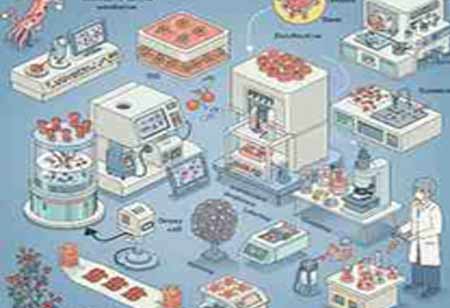Navigating the Future of Addiction Treatment Services in Europe

By
Medical Care Review | Tuesday, April 22, 2025
Stay on top of your health and well-being with exclusive feature stories on the top medical clinics and treatment centers, expert insights and the latest news delivered straight to your inbox. Subscribe today.
Addiction continues to be a significant public health challenge in Europe, affecting millions of individuals and their families. From alcohol and opioid dependence to behavioural addictions such as gambling and internet use, the European continent faces a diverse range of substance and non-substance-related issues. Governments, private organisations, and healthcare providers continue innovating and implementing modern AI strategies to address these complex issues. The sector confronts several roadblocks, from social stigma and regulatory gaps to funding shortages and technological disparities.
Understanding the hurdles, exploring the solutions, examining the market needs, and adopting cutting-edge technologies is crucial to transforming addiction treatment services in Europe. Data privacy and regulation compliance are significant concerns, as the digital divide limits access to AI-powered services in low-income or rural areas. Developers and healthcare providers must prioritise transparency, inclusivity, and collaboration with policymakers to ensure ethical and equitable AI use.
Strategies for Overcoming Addiction Treatment
Addiction treatment services in Europe face multifaceted challenges that stem from social, economic, regulatory, and cultural dimensions. The stigma impedes early intervention and reduces the effectiveness of public awareness campaigns. While public health systems strive to allocate resources for addiction services, many treatment centres remain underfunded or rely on inconsistent grant models. Regulatory inconsistencies across European countries further complicate the landscape.
While some nations have progressive policies on harm reduction, others maintain punitive approaches. Co-occurring mental health disorders often go undiagnosed or untreated. Several actionable solutions have emerged. Governments must prioritise anti-stigma campaigns and community-based awareness programs. By normalising discussions around mental health and addiction, society can encourage earlier intervention and reduce the burden on treatment services.
Regarding funding, public-private partnerships offer more stable financial support, enabling facilities to scale services and recruit skilled staff. Countries can share best practices, harmonise data collection, and establish common evaluation frameworks. Integrated care models that combine psychiatric and addiction services within a single treatment plan have also proven effective, offering a more holistic approach to recovery.
Market Drivers and Impact of Cutting-Edge Technologies
The demand for addiction treatment services in Europe continues to rise, driven by several socio-economic and demographic factors. An ageing population, particularly in countries like Germany, France, and Italy, faces unique addiction challenges related to prescription drug misuse and alcohol dependency. Urbanisation and economic stress also play pivotal roles. Individuals face increasing isolation, work-related stress, and anxiety as common triggers for addictive behaviours.
The shift in perception drives market growth and compels service providers to expand their offerings. Several technologies are making significant impacts in addiction treatment and mental health support. Telehealth platforms have transformed access to care, enabling patients to connect with counsellors and support groups remotely. This addresses geographical barriers and increases accessibility to vital services. Wearable technology, like smartwatches, helps individuals monitor physiological signs, offering insights into habits and emotional states. This data allows providers to create personalised treatment strategies.
Additionally, blockchain can secure and share health records, ensuring privacy and facilitating better coordination among healthcare providers. Mobile applications have become valuable tools by providing self-help resources, educational materials, and digital support groups, allowing individuals to track progress and connect with peers. Virtual reality (VR) is being explored as a therapeutic tool to help patients confront triggers in controlled environments, while augmented reality (AR) enhances therapy by creating immersive experiences.
Gamification incorporates game elements into treatment programs, boosting engagement and making recovery more enjoyable. The Internet of Things (IoT) can aid recovery by utilising smart devices to remind individuals about medications and connect them with their support networks. Together, these technologies enhance the effectiveness and accessibility of addiction treatment services, leading to improved patient outcomes.
Future Insights: Trends Ahead
There is a shift towards outpatient and community-based care, moving away from traditional inpatient rehabilitation centres. Providers are investing in day programs, telehealth services, and decentralised care models, allowing patients to recover in their everyday environments. This approach increases accessibility, reduces costs, and helps individuals develop long-term coping strategies.
Tools in this model often use cognitive behavioural techniques, motivational interviewing, and mindfulness exercises delivered through mobile or web platforms. The rise of wearable technology in addiction care facilitates real-time interventions and support between clinical visits. AI enhances the recovery journey with personalised interventions that adapt to patient progress and automated aftercare programs that help maintain recovery and prevent relapse.
As the demand for innovation grows, European nations must continue investing in modern technologies and culturally sensitive care models to address the unique barriers marginalised groups face. The success of these services relies on coordinated policies, stable funding, and public participation, promoting mental health as a priority and reducing stigma through awareness initiatives.







